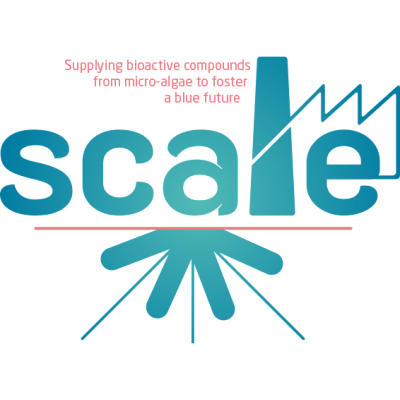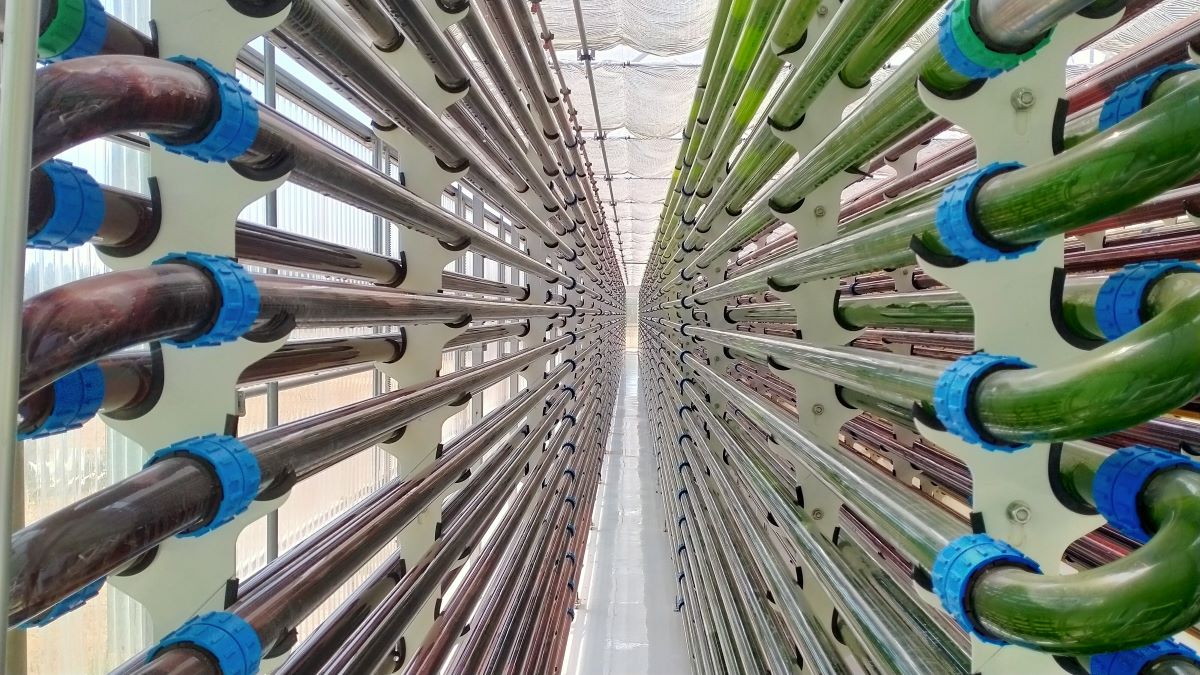
SCALE
Supplying bioactives Compounds from micro-Algae to foster a bLue futurE

Supplying bioactives Compounds from micro-Algae to foster a bLue futurE
The current food system is seriously challenged by evolving consumers needs and by the rapid world population growth, which could peak to 9.7 billion people in 2060. To provide food system with high nutritional value ingredients, it becomes of paramount important to harness the potential of the oceans in an environmentally responsible manner. Microalgae are a highly promising source of aquatic biomasses and find applications in a wide range of fields, including nutrition and well-being. Currently, no large-scale industrial production site provides access to the exceptional biodiversity of microalgae in an efficient way. Only a few species are produced globally with dedicated production sites. For instance, 70% of the market is currently represented by Spirulina and Chlorella.
The SCALE project strives to build and operate a first-of-its-kind flagship plant producing ingredients with high nutritional value derived from the untapped microalgae diversity, for food, food supplements, feed and cosmetics sectors, through economically-sound processes and in an environmentally friendly way. This Flagship project is based on the unique and cutting-edge CAMARGUE photobioreactor technology developed and patented by Microphyt, a French leading SME in microalgae-based natural solutions for nutrition and well-being.
The CAMARGUE technology currently operating and running at demo plant offers both high differentiation potential and the ability to supply natural active ingredients in an industrial and standardized way. SCALE will transfer this technology from the demo plant to the industrial Flagship plant able to produce large-scale volumes of high-value ingredients of unique microalgae species that cannot be supplied from other production technologies.
To do so, SCALE project gathers 11 key EU and international partners in an integrated value chain from microalgae production to high value ingredients extraction of bioactives compounds and end-use applications in food, food supplements, feed, and cosmetic domains.

The overarching objective of the SCALE project is to demonstrate the viability of industrial scale microalgae production in a way that is environmentally and economically sound. Within this, it will pursue a number of specific objectives.
The SCALE project is aiming at delivering a number of specific impacts that will contribute to the numerous goals of the BBI-JU. These will include:
In addition, the SCALE project will add to, and complement, the base of BBI-JU flagship projects and contribute the wider overall mission of the joint undertaking.